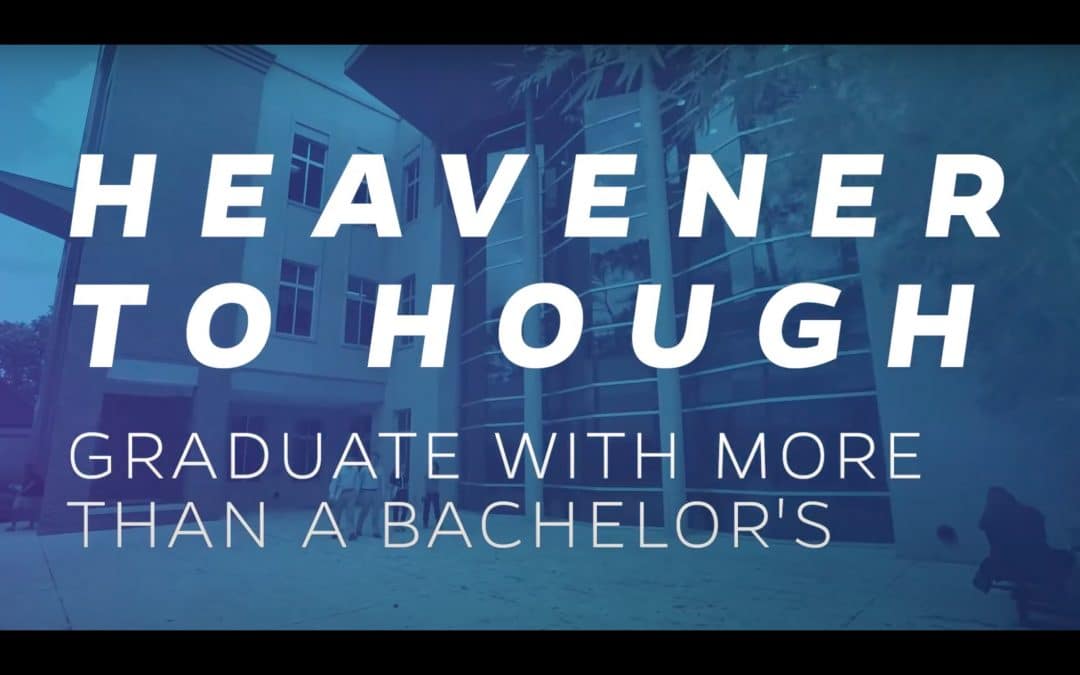How you can benefit from a combination degree
The plan to pursue a combination degree is generating a buzz among undergraduate students and can be quite appealing. But what is a combination degree? And, more importantly, why would this be considered beneficial?
The combination degree program allows undergraduate students who qualify academically to obtain both a bachelor’s and master’s degree. Most students begin the application process sometime during sophomore or junior year, but each student’s academic path is unique and there is no exact timeline that must be followed.
Within the Warrington College of Business, there are seven options available for undergraduate students. Regardless of a student’s undergraduate degree program, there is a combination degree option available for them to pursue. Warrington offers the following programs:
- Master of International Business (online and on-campus)
- Master of Science in Entrepreneurship (online and on-campus)
- Master of Science in Finance
- Master of Science in Information Systems and Operations Management
- Master of Science in Management (non-business majors; online and on-campus)
- Master of Science in Marketing
- Master of Science in Real Estate
Ranging between 30 to 40 credit hours, each of these specialized master’s degrees offer students an opportunity to dive deeper into their educational pursuits, often resulting in both a more enriching academic experience and more desirable career choices upon graduation. By applying to and being accepted into one of these combination degree programs, students are permitted to enroll in graduate courses and begin making progress towards their graduate degree alongside their remaining bachelor’s degree requirements. In fact, the Warrington specialized master’s programs allow up to 12 credits to be shared between the undergraduate and graduate degree, saving both time and money.
In addition to the shared 12 credits, our programs permit students to complete additional credits that count only towards the graduate degree. By allowing additional credits to be completed prior to earning a bachelor’s degree, it is possible for students to finish their master’s degree in one or two additional semesters.
Graduate education adheres to a different fee structure than undergraduate courses. Students participating in a combination degree are responsible for paying the graduate rate of tuition based on their residency status, but in many cases a student’s undergraduate financial aid can help offset these costs. These savings can be applied to both the shared and additional graduate credits completed while classified as an undergraduate student.
Graduates of the combination degree programs offered by Warrington secure attractive job offers. Students from all seven programs have accepted offers with well-known companies in business analytics, investment banking, consulting, commercial real estate, and market research. Others have successfully launched their own businesses after graduation.
In short, there are a number of benefits for pursuing a combination degree. They include, but are not limited to:
- an opportunity to double count graduate credits toward their bachelor’s degree at no loss of integrity or quality of either degree.
- completion of both degrees in a shorter period of time
- the cost of both degrees is reduced as a result of the shared credits
- more intimate classroom settings, allowing for greater collaboration with peers and faculty
- a diversified educational experience that provides more preparation for the workplace
Interested in learning more? Curious how a combination degree may fit into your academic and professional goals? Please send me an email at allison.gatsche@warrington.ufl.edu to get started!




